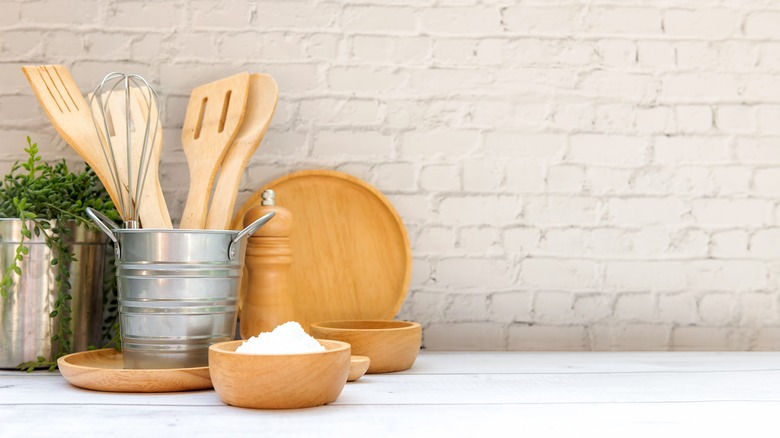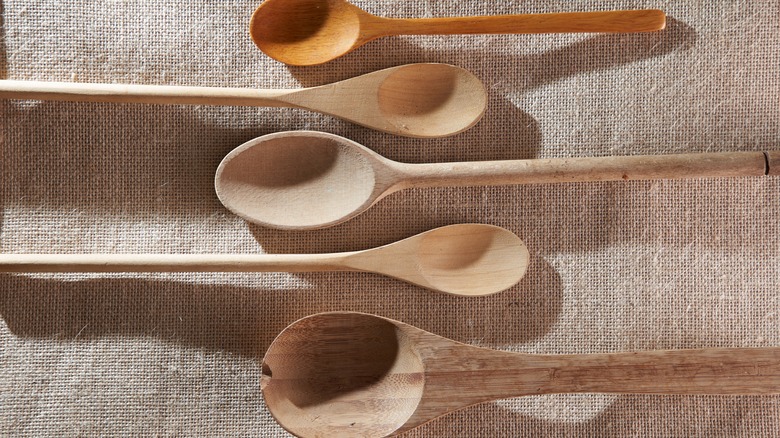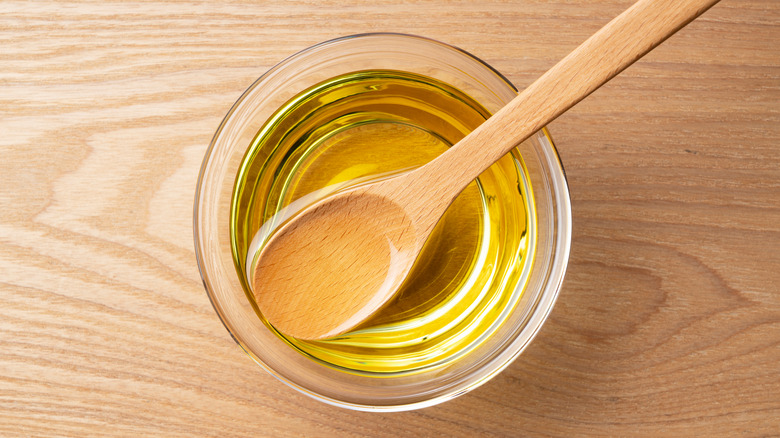How To Disinfect Wooden Kitchen Utensils Properly
Wooden kitchen utensils, including serving and tasting spoons, spatulas, salad forks, and slotted spoons, add tremendous depth to your kitchen's function and overall appearance. They contribute a clean, timeless look to your kitchen utensil holder and can also improve your cooking experience.
As Healthy Cookware points out, one of the best parts about using wooden utensils is that they don't scratch your pans, whether stainless steel or non-stick coating. They're also safer in a multitude of ways. For one, they don't hold heat, making it safer and easier to touch the handles. They're also quite resistant to bacteria and germs, with a study from Paki Logistics reporting that bacteria live longer on plastic kitchen tools than on wood. However, since wood is porous, it can absorb germs and food much easier than other materials, where bacteria can fester and infect the wood. Knowing how to clean, disinfect, and maintain your wooden utensils is vital for a healthy, functional kitchen.
Cleaning and disinfecting
While wooden kitchen utensils may be great to cook with, they're not the easiest to clean. Though it can technically clean and disinfect them, you should never put wood in the dishwasher. As Finish explains, the extreme temperatures and moist environment will result in wood splintering, which can lead to bacteria festering inside the wood tools.
Clean your wooden utensils immediately after use, keeping food from drying onto the utensils and crusting over. Hygiene Food Safety says you should handwash all your wooden kitchen materials and utensils. Use hot water, but don't expose it too long since it could lead to the wood splitting. A simple, mild dish soap works just fine for routine cleaning. If you regularly and promptly clean your wooden utensils, bacteria and germs won't set in. Bacteria only becomes an issue when the wood splinters or is damaged in some way, which is where upkeep and maintenance become important.
Maintaining wooden kitchen utensils
Maintaining your wooden utensils is just as important, if not more crucial, than cleaning them. To be kept up to food safety standards, the wood grain must be intact and well moisturized. Everyday cooking and cleaning can and will quickly dry out the wood, leading to it parching out and, if left unchecked, splitting.
The best way to keep your wooden utensils moisturized and up to kitchen standards is by bathing them in food-grade mineral oil monthly, recommends LocalWe. Be sure to look for oil specifically marketed for kitchen utensils — cooking oils like olive, avocado, grapeseed, etc., will go bad over time and cause a build-up of bacteria. You can use your hands or a soft cloth to rub a thin layer of oil over the wood, especially the base of spoons or spatulas, letting it air dry afterward. Finally, if there's any residual food or oil smell, you can use a lemon slice to deodorize the wood quickly.


